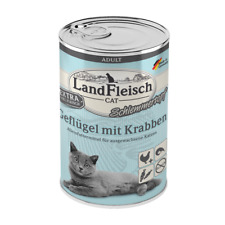Compounded Drugs – Are they OK for my Pet?
If you have visited the veterinarian lately with a sick animal, you may have learned a little bit about compounded drugs. Your vet may have mentioned that your pet’s dose is not available but it could be compounded custom for your pet’s particular needs.
So how does drug compounding work? What is it and how can these drugs help your pet?
What is compounding?
Compounding is a pharmaceutical practice in which a drug is changed in its dosage, form or flavor to fit the particular needs of the patient.
Compounding has a long history both in traditional medicine, such as Chinese or Ayurvedic medicine, and in modern Western medicine. Herbs or pharmaceuticals are ground or put into solution with additives to achieve a proper dosage or to change the flavor of the medicine. Veterinarians have been using compounding for decades either in their own practice or through a commercial compounder.
Why is compounding important for veterinary medicine?
Compounding has gained popularity simply because it makes it easier to give a pet a medication. Cats and exotic pets often require very small dosages of medicines that aren’t produced commercially. Getting your pet to swallow a pill can be difficult and dangerous for the person trying to administer the medication. Flavored chewables, topicals and liquids make dosing a breeze.
What types of compounding are available?
Compounding pharmacists have become very popular and easy to find for veterinary needs. They are able to make chewable tablets, “mini pills” containing super small doses of active ingredient, flavored liquids and topical creams or gels. Flavored pills can taste or smell like meat or fish. A variety of flavored liquids exist as well, from tuna flavored for cats to liver flavored for dogs. Veterinarians are able to order custom concentrations of injectable medications to use within their practice. Sometimes, veterinarians are allowed to dispense compounded drugs directly from their in-house pharmacy.
Can compounded drugs help my pet?
Maybe.
Compounded drugs can be a bit of a tricky thing for dogs and cats. It is not as simple as just grinding up a pill and suspending it in tuna juice. Some compounding pharmacists and veterinarians will tell you that compounded drugs work in all pets, but this is not necessarily true.
Some drugs are not absorbed as well into the body once they are changed from an oral preparation (tablets or capsules) into a cream meant to be absorbed through the skin. Drugs can change if they are not put into a proper suspension that helps to preserve their potency. Some medications lose their efficacy if they are in suspension for too long or at the wrong temperature.
Buyer Beware
In veterinary medicine, there are only two medications that work well when put into a transdermal preparation. These are methimazole (treats hyperthyroidism in cats) and amlodipine (treats hypertension in cats.) Transdermal cream is typically applied to the hairless portion of the cat’s ear flap. This may seem like a boon to many cat owners that dread or simply cannot physically give their cat a pill.
Despite this fact, internet compounding pharmacies show pages and pages of other kinds of drugs, like antibiotics, that are sold as transdermals for cats. But beware – most of them probably won’t work, as the drugs won’t fully absorb through the skin. Most transdermals advertised for cats are placebos at best.
Veterinary Compounding and the Law
It is important to keep in mind that compounding is not as well regulated as primary manufacturers. Compounding has come under fire by the FDA in the past few years due to issues in human compounding. While many compounders are honest and their sourcing practices are good – fraud and poor quality control has lead to some highly publicized deaths in recent years. In 2009, several polo ponies died during the National Championship as a result of an improperly mixed compounded medication.
Due to these issues, laws are rapidly changing across the US and Canada. If your pet uses compounded drugs, be aware that things are changing and this can affect how you are able to source your pet’s medication.
Veterinarians have been using compounding for decades and are very comfortable with it. Traditionally, most compounding happened within the veterinarian’s own practice. Some of this is still true today depending on where you live.
Overall, it is always important to talk to your veterinarian in depth before deciding to use a compounded medication. It might just be a great thing for your pet’s health and for your sanity.
Resources
FDA and Compounding: http://news.vin.com/VINNews.aspx?articleId=46781&callshare=1
Polo Ponies: http://www.nytimes.com/2009/04/24/sports/othersports/24polo.html











